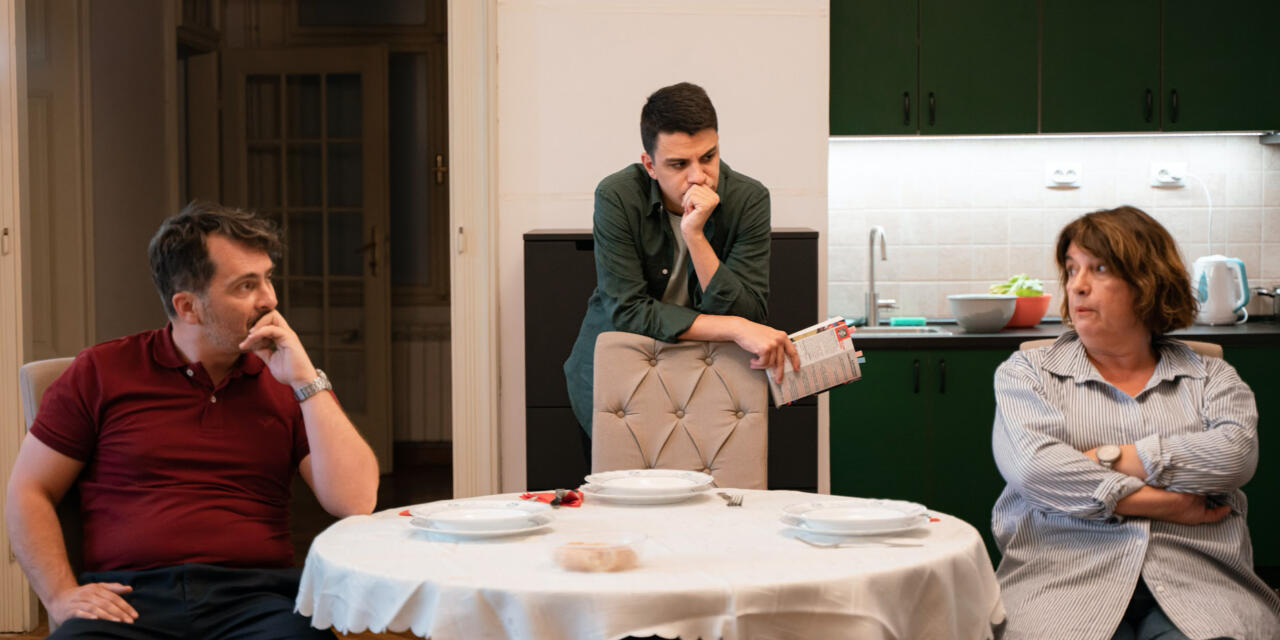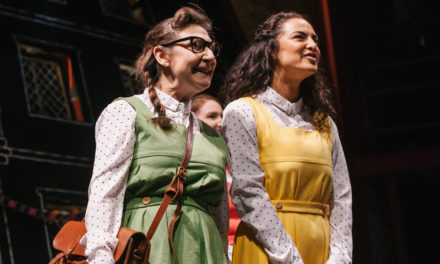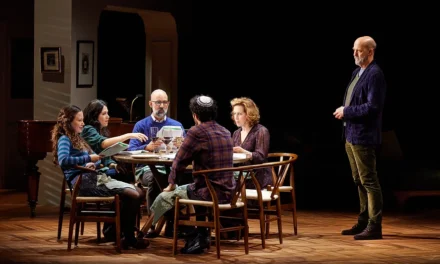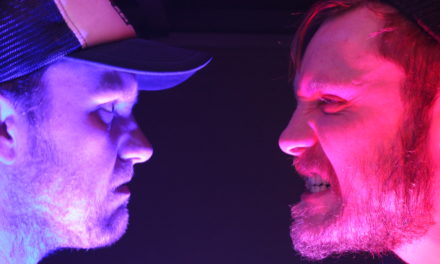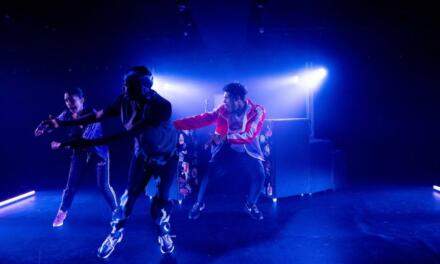Meta-theatre has been a bit of a theme at Kosovo’s latest independent theatre showcase in Prishtina. Perhaps it’s a coincidence, but I would lay a bet it’s not. More likely, it is an emerging aesthetic that is dominating form in the Balkan theatre scene. Maybe there is a need, a desire for plays to draw attention to themselves, to remind audiences not to get too comfortable or passive. Yes, there’s spectacle and entertainment, but the same shows are social and political and need thinking about.
It’s no different for Our Son, produced by Serbian company Heartefact, written and directed by Patrik Lazić, which was also part of the Kosovo showcase. It’s an autobiographical play exploring Lazić’s identity as a young gay man in a homophobic society and how this affects familial relationships. It might be brash of me to write, or perhaps lazy, but the play is of Tennessee William’s proportions in its ambition, scale and exploration of role-playing as a therapeutic strategy.
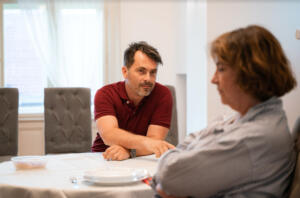
PC: Milena Arsenic
It begins with a separated wife and husband sitting amicably enough at a dining table, waiting for the arrival of Patrik from abroad. As the homemade soup and lasagne languish on the side, the ex-couple rib each other about their past relationship and soon move to thinking about why their son is gay. The mother (a magnificently steely, witty, yet vulnerable Dragana Varagić) refers to an American book by Richard Cohen, who claims there is a “cure” for homosexuality. Indeed, we learn that he has cured himself. As she believes that her husband (a raw and angry muted performance from Aleksandar Đinđić) didn’t form bonds with Patrik when he was a child (another reason she blames for his homosexuality) she throws out glib statements from Cohen’s book for him to recite to Patrik when he arrives. Đinđić delivers these with just the right amount of awkwardness that one laughs with a shadow of sadness, not the downright mockery that the comments deserve.
Patric’s arrival brings about the end of any sense of this being a naturalistic fourth-wall drama. His entrance into the site-specific playing space is like watching a freeze frame on a video. Amar Ćorović, who plays Patrik, goes entirely still and stares at his parents. As he looks at them as if saying, “I know you” or “I see you,” the audience is aware that he is there and that he is aware that he is, but his parents, however, don’t or won’t see him. As he then places Richard Cohen’s book into his mother’s hand, the realisation dawns that this is a memory play and artifice.
The sudden presence of Patrik as a narrator – silent and staring, like Tom in Williams’ A Glass Menagerie – adds dynamism to an otherwise very relatable social-political play about homophobia. But, this memory play, the upfront in-your-face staging of it, so that the audience can see its very workings, takes it someplace else. This is not at the expense of the minutely detailed character portrayals by this cast of three. I don’t think that I have ever seen such raw, truthful performances at such close quarters acted with such intensity. So intense, in fact, that it is impossible not to fall in love with all three of them. No, it is not at the expense of such performances, but rather for the betterment of them.
As Varagić and Đinđić go back and forth in a blame game or as Ćorović as Patrik starts to feed them lines something magical starts to happen. It comes out of the blending of the artifice of the form with the naturalism of the acting. It’s like double vision. Here are some of Patrik’s memories (at points the other characters struggle to get out of them, the mother even says she does not want to do this play anymore). The memories are sad, cruel even. Yet, despite these truths, they carry with them, somehow, a nostalgia for a time that never was, for the kind of relationship with his parents that Patrik yearned and still yearns for, but might never achieve. It’s a weird illusion, a strange place to inhabit as an audience member. Furthermore, the play avoids the kind of sentimentality or melodrama that could be associated with such issue-based works and becomes instead a high-end exploration of how a mother and father and son’s love for each other cannot be fully realised because of the discriminatory wall of prejudice that has been erected between them.
The playing space also makes this show a standout. In previous shows in Serbia, the play has been put on in people’s apartments. This takes on meaning at the moment when audience members are cajoled into reading lines reserved for the father and mother – the point about culpability in Serbian society for homophobic attitudes is clear. But this production was seen at Prishtina’s National Museum, in its lapidarium. It’s a small, modern, white-walled space with a huge floor-to-ceiling glass door front. The set design inside – lamps, tables, a TV in the middle beaming the necessary Serbian to English subtitles – made things feel far more decidedly superficial, highly theatrical and exhibitionist. The whole thing felt like a masterful experiment in playmaking. And when, at the end, the lamps are switched off, with Patrik feeling more alienated from his parents, there is a sense that his hope for acceptance ebbs away with the dying of the lights. Although the audience must hope that the true reality of this situation is not so.
This post was written by the author in their personal capacity.The opinions expressed in this article are the author’s own and do not reflect the view of The Theatre Times, their staff or collaborators.
This post was written by Verity Healey.
The views expressed here belong to the author and do not necessarily reflect our views and opinions.

